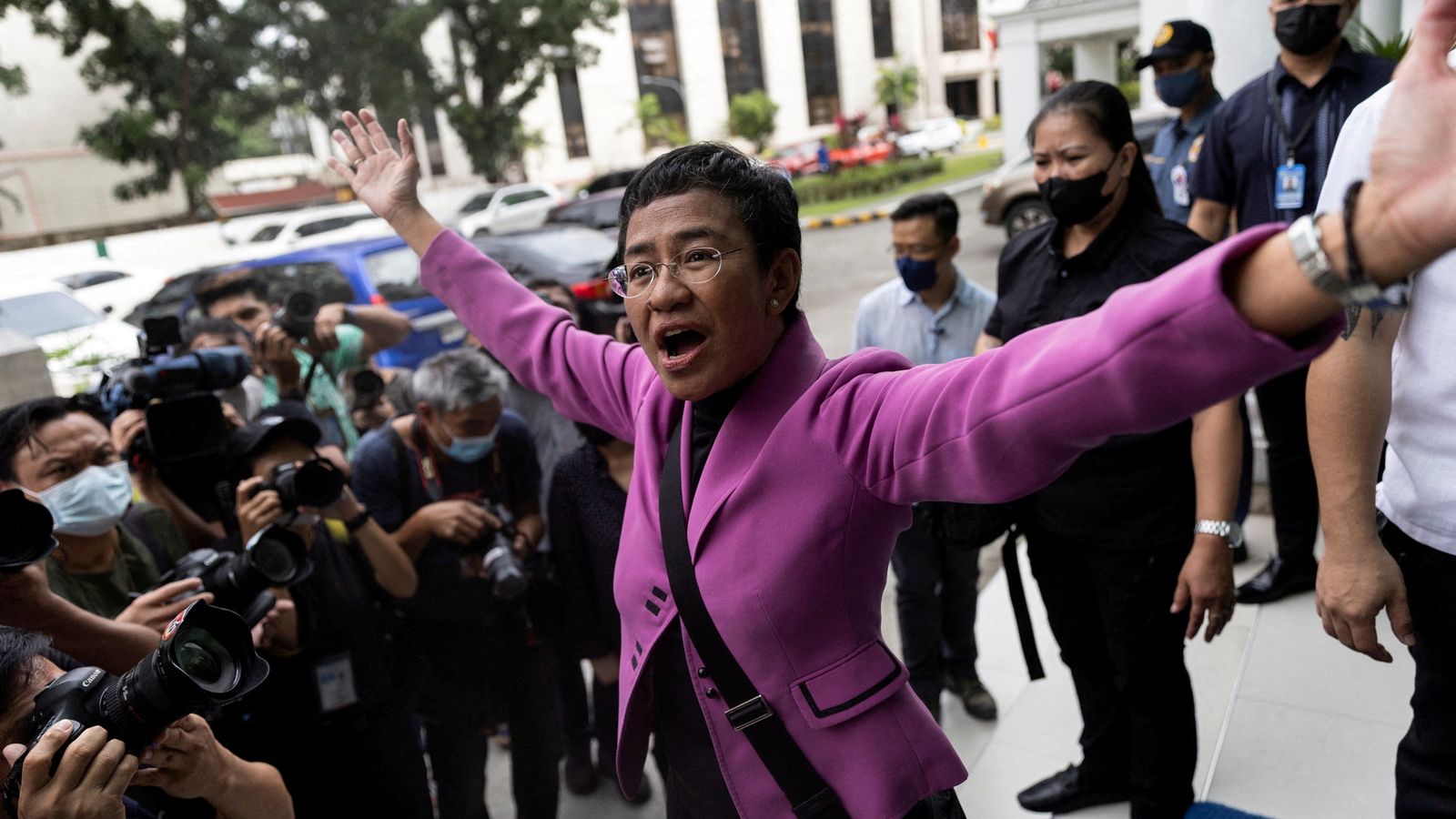Nobel Peace Prize winner Maria Ressa has been cleared of tax evasion charges that human rights charities said were “bogus and politically motivated”.
The Court of Tax Appeals in the Philippines ruled that prosecutors failed to prove beyond reasonable doubt that Ms Ressa and her news organisation Rappler Holdings Corp evaded tax payments in four instances after raising capital through partnerships with two foreign investors.
Ms Ressa said the charges were one of several legal cases used by former Philippine President Rodrigo Duterte to silence critical investigative reporting.
Amal Clooney, a member of Ms Ressa’s legal team, said: “For four years my client has had a 30-year sentence hanging over her head while the Philippine courts considered the spurious charges filed against her. The charges were political – a straightforward attempt to silence a journalist.
“But today we see justice being done. We see judges drawing a line. We see freedom being upheld.
“May this be the beginning of a new chapter in the Philippines in which journalists are safe, speech is free, democracy is secured and the rule of law can prevail,” Mrs Clooney said.
In its decision, the court said: “The acquittal of the accused is based on the findings of the court … that respondents did not commit the crime charge.”
Nobel Peace Prize: Human rights champions in Belarus, Russia and Ukraine honoured
Annie Ernaux awarded 2022 Nobel Prize in literature: ‘She writes about things that no one else writes about’
Swedish scientist Svante Paabo wins Nobel Prize for work on human evolution
After the verdict was announced, a tearful Ms Ressa said: “Today, facts win, truth wins, justice wins.”
“This acquittal, even if took a long time, is not just for Rappler. It is for every Filipino who has ever been unjustly accused.”
Ms Ressa’s news organisation Rappler welcomed the ruling as a “triumph of facts over politics”.
Human Rights Watch said the charges were “bogus and politically motivated” and that Ms Ressa’s acquittal is “a victory for press freedom in the Philippines”.
Russian journalist Dmitry Muratov and Ms Ressa won the Nobel Peace Prize in 2021 for fighting for their news organisations’ survival and defying government efforts to shut them.
They were honoured for “their efforts to safeguard freedom of expression, which is a precondition for democracy and lasting peace”.
Ms Ressa faces three more legal cases – a separate tax case filed by prosecutors in another court, her Supreme Court appeal of an online libel conviction, and Rappler’s appeal of the closure order issued by the Philippines’ corporate watchdog, the Securities and Exchange Commission.
Her legal team says the charges amount to an “abusive campaign” which has been condemned by several international organisations including the UN, the EU, the US Department of State and US Congress and the Media Freedom Coalition.
She faces up to six years in prison if she loses the libel conviction appeal, which was filed by a businessman who said a Rappler news report falsely linked him to a murder, drug dealing, human trafficking and other crimes.
Rappler, founded in 2012, was one of several Philippine and international news agencies that reported critically on Duterte’s brutal crackdown on illegal drugs that left thousands of mostly petty drug suspects dead.
The news outlet also investigated his handling of the coronavirus pandemic, including prolonged police-enforced lockdowns that deepened poverty, caused one of the country’s worst recessions and sparked corruption allegations in government medical purchases.
The massive drug killings are being investigated by the International Criminal Court as a possible crime against humanity.
Duterte ended his turbulent six-year term last year and was succeeded by Ferdinand Marcos Jr, the son of a dictator who was overthrown in an army-backed “people power” uprising in 1986 following an era marked by widespread human rights violations and plunder.












